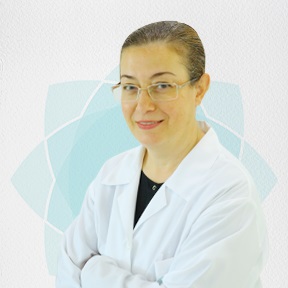
Today is the 18th of October World Menopause Day. On this occasion, we had the chance to have an interview with Gynaecological Diseases and Obstetrics Specialist Asst. Prof. Tijen Ataçağ MD., about menopause which covers about one third of a woman’s life and about osteoporosis which is related to menopause. Asst. Prof. Tijen Ataçağ MD., provided valuable information about the symptoms and preventive steps for menopause and osteoporosis.
What is menopause?
World Health Organization (WHO) defined menopause as a natural process as the permanent cessation of menstruation for 12 months which is not a result from a physiological or pathological factor. Women mostly start to worry that they are experiencing menopause, when changes occur in their monthly cycle.
When does menopause starts?
The average age of menopause is 51 in developed countries, and 48 in less developed and developing countries.
What are the first symptoms of menopause?
Contrary to the popular belief, after menopause the uterine does not lose its function, but the ovaries do lose its functions. If you are going through menopause, you may have irregular periods, hot flashes or depression. Also sleep disturbances, memory and concentration problems may occur.
When should I consult a doctor during menopause?
If bleeding occurs more often than every 3 weeks, if you have excessive bleeding, if you have bleeding after menopause, even if it’s only spotting, you should consult a doctor. Also one should not forget that there is a direct link between menopause and osteoporosis risk.At this point what would you like to tell us about the upcoming 20th of October, Osteoporosis Day?
Osteoporosis is a common problem which causes bones to become less dense and more fragile. Women can lose up to 20% of their bone density in five to seven years after menopause. Many postmenopausal women do not take action. According to the International Osteoporosis Foundation survey conducted in 11 countries show denial of personal risks by postmenopausal women. In fact the falling levels of the hormone oestrogen causes osteoporosis risk.
How is osteoporosis diagnosed?
It is possible to diagnose osteoporosis with different tests. If you have been previously diagnosed with osteoporosis, there are treatments that may further reduce bone loss or increase bone density. In some cases, people may not know that they have osteoporosis until their bones become so weak that a sudden bump or fall causes a fracture.
What should be done to reduce the side effects of menopause and prevent osteoporosis?
Eating calcium and vitamin D-rich foods, doing regular exercise, taking vitamin D if necessary, avoiding smoking and limiting alcoholic beverages intake are the top ways to prevent osteoporosis. All these methods are effective also to reduce the side effects of menopause. Finally, I would like to add that we should not ignore the fact that the treatment of osteoporosis is possible and that hormone production decreases through the menopausal period and immune system weakens becoming less resistant to various diseases.